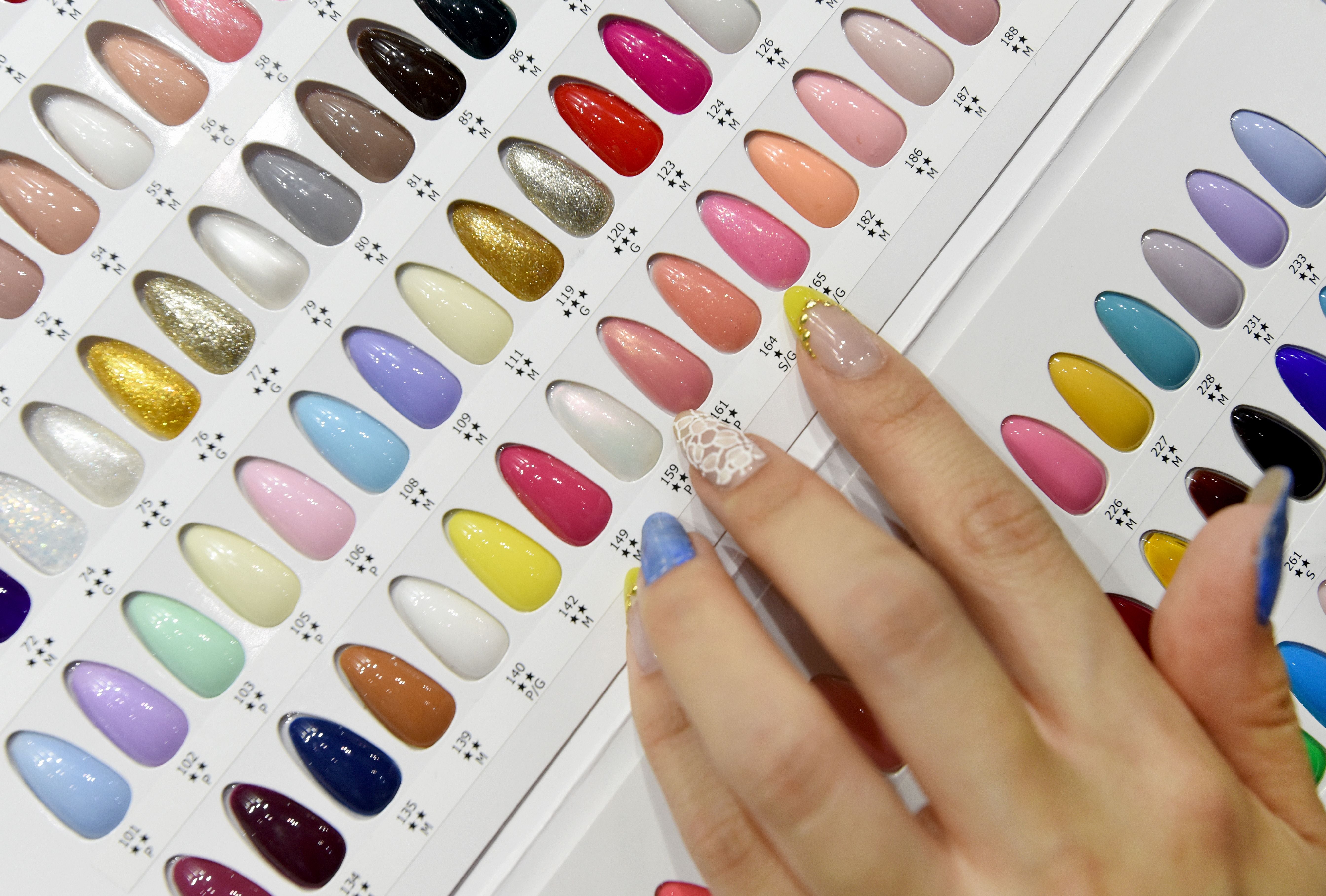A key ingredient used in many brands of gel nail polish has been banned in most of Europe but it remains on sale and available in the U.S.
Trimethylbenzoyl diphenylphosphine oxide, commonly known as TPO, is now forbidden in all cosmetic products as of September 1, after European Union officials deemed it potentially toxic to humans.
Numerous gel nail polishes use TPO as a ‘photoinitiator’, which lets the polish harden faster when bombarded by ultraviolet light, and helps them hold their color for longer.
But several studies on animals have linked the chemical to long-term fertility damage, leading the E.U. to ban it as a precaution, while further research is conducted.
By contrast, the U.S. has not yet regulated TPO, just as it has declined to act on numerous other food additives and chemical ingredients banned by European nations.
Nail salons in any of the the E.U.’s 27 member states, as well as other countries that mirror the trade bloc’s regulations such as Norway and Switzerland, must now stop selling TPO-based nail gels and safely dispose of all their current stock, while manufacturers must reformulate their products to be TPO-free.

The E.U.’s ban could still disrupt the American beauty industry if companies source their products from Europe or are affected by knock-on supply shortages.
Those that reformulate their gels in Europe may do the same in the U.S. in order to avoid making two separate versions of the product. The ban could also could also prompt U.S. regulators or state governments into taking action.
Francesca Rapolla of the British trade association CPTA told the nail magazine Scratch that sometimes industries could win exemptions from E.U. regulations by proving that the risks can be mitigated.
But she said: “In the case of TPO, the industry did not, and could not, defend the continued use of this ingredient in nail products, mainly because it could not demonstrate that there are no alternative ingredients to this one.”
Many nail industry figures are opposed to the ban. “The prohibition of TPO in U.V. gels is not supported by a scientifically justified risk assessment,” said California-based scientific consultant Doug Schoon in an open letter on Sunday.
“If left uncorrected, this decision will once again impose unnecessary economic burdens, waste safe products, and undermine confidence in E.U. regulatory proportionality.”
The Belgian wholesaler ASAP Nails and Beauty Supply set up a protest website to oppose the ban, arguing it would cause “major economic damage” to small businesses and was based on “no human evidence of danger”.
.jpg?trim=0,0,0,0&width=1200&height=800&crop=1200:800)

